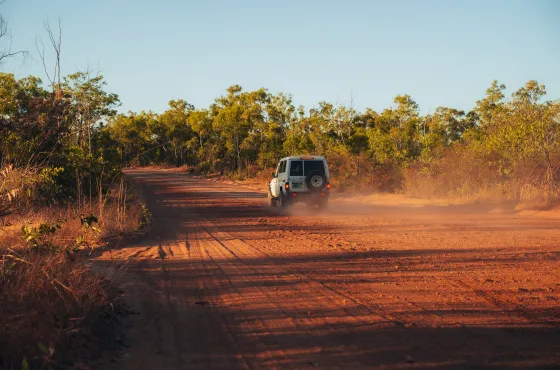
Kakadu National Park: Australia’s Big Backyard Secret
It was nary a blip on travellers’ radars when Crocodile Dundee leapt on to cinema screens more than 30 years ago, with Paul Hogan telling the world, “this is my backyard”. Fast forward to today and Kakadu National Park – Australia’s largest national park and home to some of the oldest rock art in the world – is still revealing its secrets, says journalist Celeste Mitchell, in a recent story for New Ltd’s ESCAPE.
Full story: https://goo.gl/PkOHnq
Kakadu is a land of waterfalls and natural infinity pools. Of sprawling wetlands and millions of migratory birds. It’s a place where you can spot crocodiles, eat them and even sleep inside one – the indigenous-owned Mercure Kakadu Crocodile Hotel (kakadutourism.com) in Jabiru is one of the Northern Territory’s most endearing man-made icons.
And finally, it seems, Aussies are waking up to the riches of our big backyard and discovering Kakadu for themselves. Mercure Kakadu Crocodile Hotel general manager Richard McArthur says the hotel’s biggest growth in the past 12 months has come from the domestic market.
“Last year, we saw much lower than average rainfall during the wet season, which I believe created an increase in confidence regarding accessibility,” he says.
WHY VISIT
With a dual UNESCO World Heritage listing, the depth of Aboriginal culture, epic landscapes and wildlife in Kakadu is staggering, and access is only a few hours from Darwin.
“There are so many amazing activities to do but the availability of many varies depending on what time of year you visit,” McArthur says.
“Year-round, we recommend our guests take a Yellow Water Cruise, a scenic flight over the park and watch the sunset at Ubirr. This way, they will be assured of an experience that encompasses nature, culture, beauty and adventure.”
WHEN TO VISIT
Most places in the world experience the four seasons but in Kakadu the local Bininj/Mungguy people recognise six seasons, which means the experience at different times of year can be vastly different.
“The wet season is a great time to visit the park due to the fact that you can get great value and see the park when it is looking green, luscious and all the flora, fauna and wildlife are most active,” McArthur says.
“A wet season scenic flight over the top of Jim Jim and Twin falls when the water is rushing and experiencing the vastness of the region is a really memorable experience.
“Typically, the dry season months of June to October are popular because there is access to swimming holes and waterfalls that would not be accessible in the wet.”
After the inaugural Kakadu Bird Week was deemed a success last year, the event will run again from October 1-7 (parksaustralia.gov.au). Kakadu is home to more than a third of Australia’s bird species and during this week twitchers can join tours with specialist bird guides and attend slide shows and talks.
WHEN TO BOOK
The popularity of Kakadu coupled with limited accommodation options means booking well in advance is recommended for travel during the dry season.
It’s the reason pop-up glamping safari-style accommodation is set to return with 5m bell tents (replete with real beds, power and fans) for a second season at Cooinda Lodge from late June to September.
While bookings are not yet open, you can register your interest on their website (kakadutourism.com).
“There is more availability during the rest of the year and therefore you can get great value and often a more personal experience,” McArthur says.
“We would encourage potential visitors to do their homework and work out what it is that they want to experience and plan their holiday based around that.”




